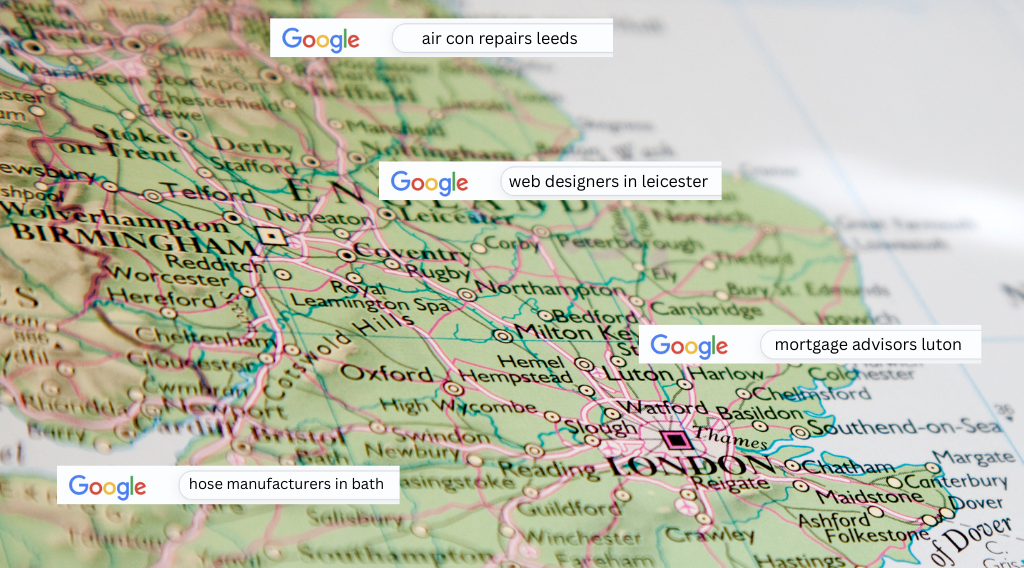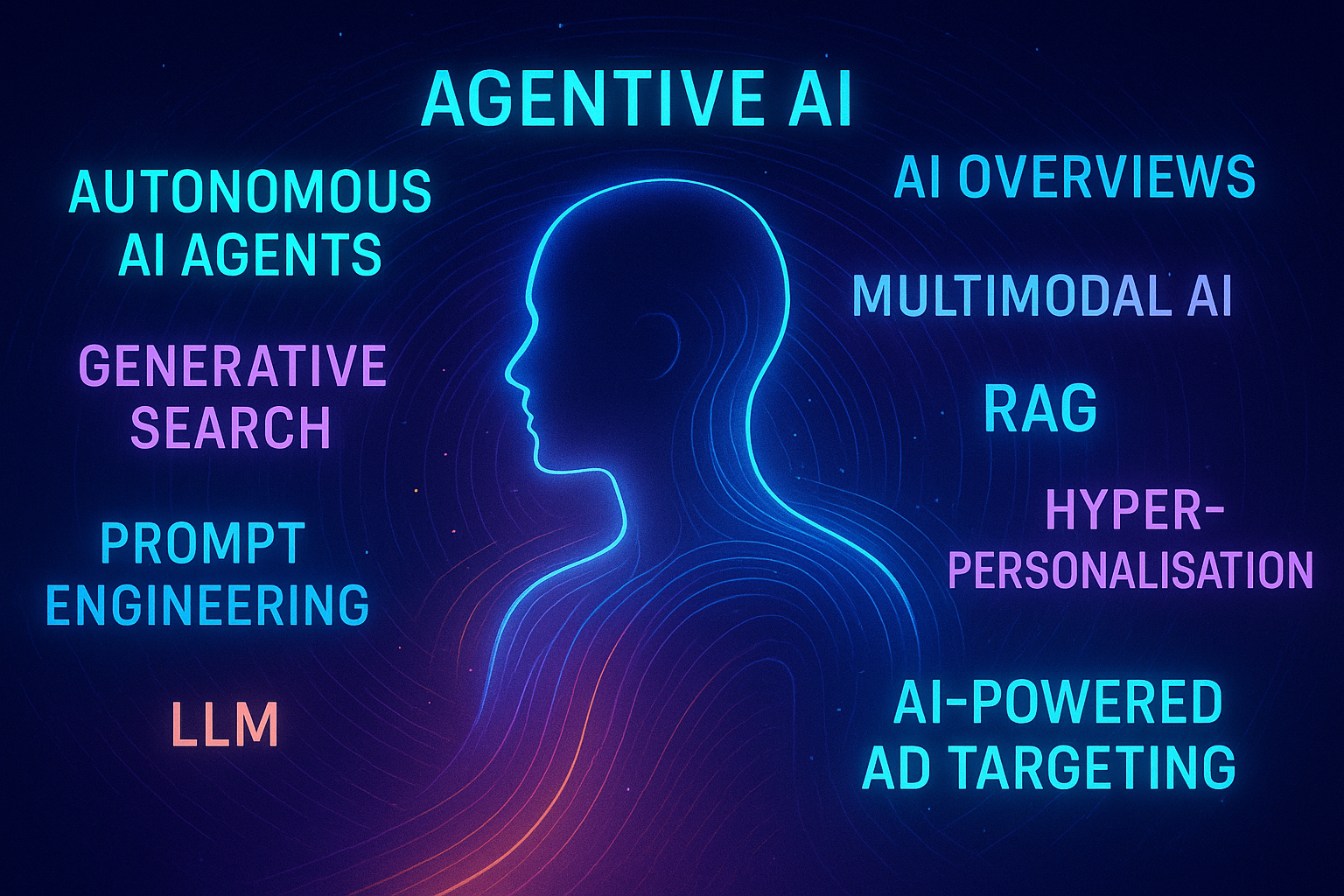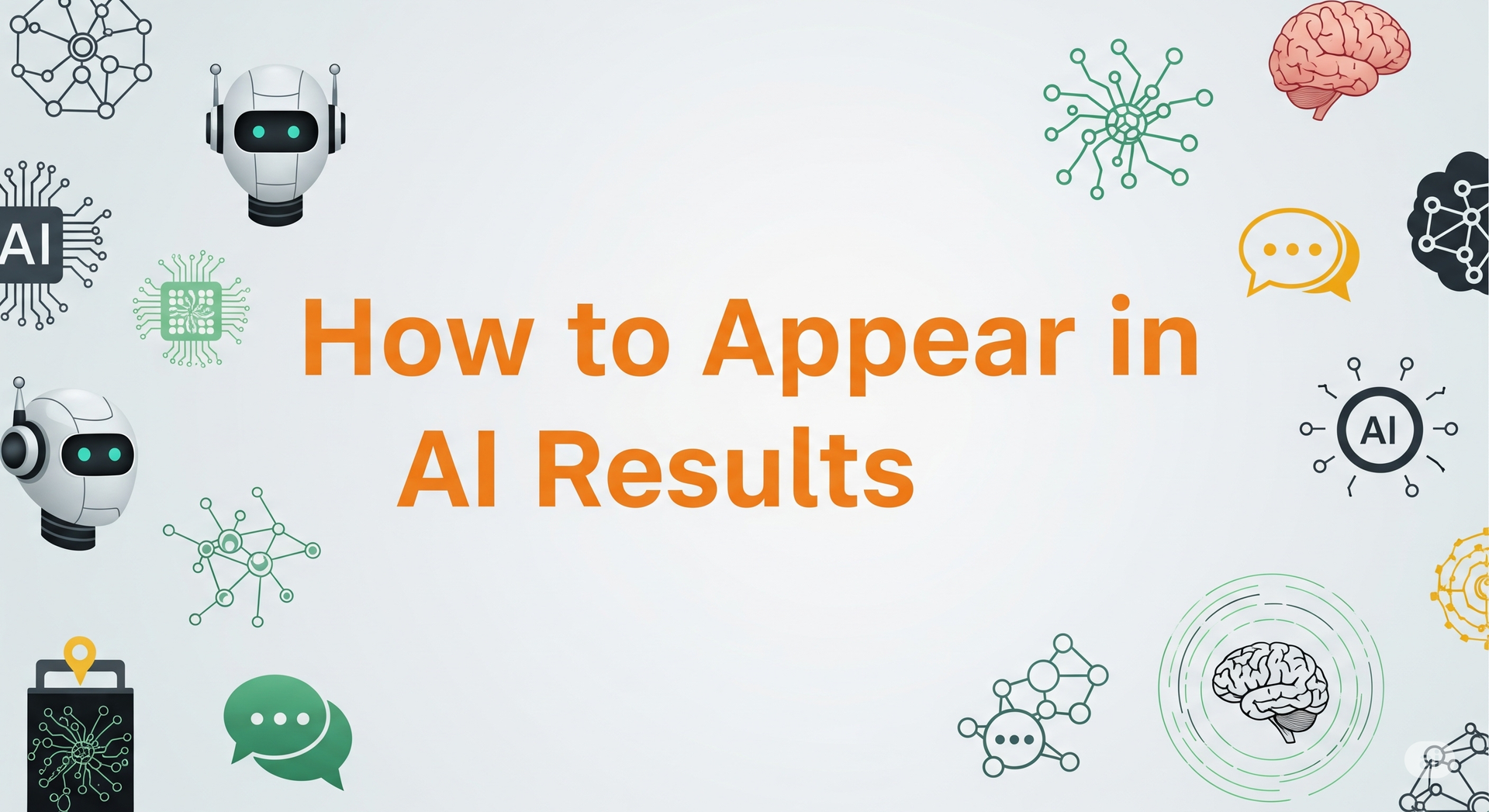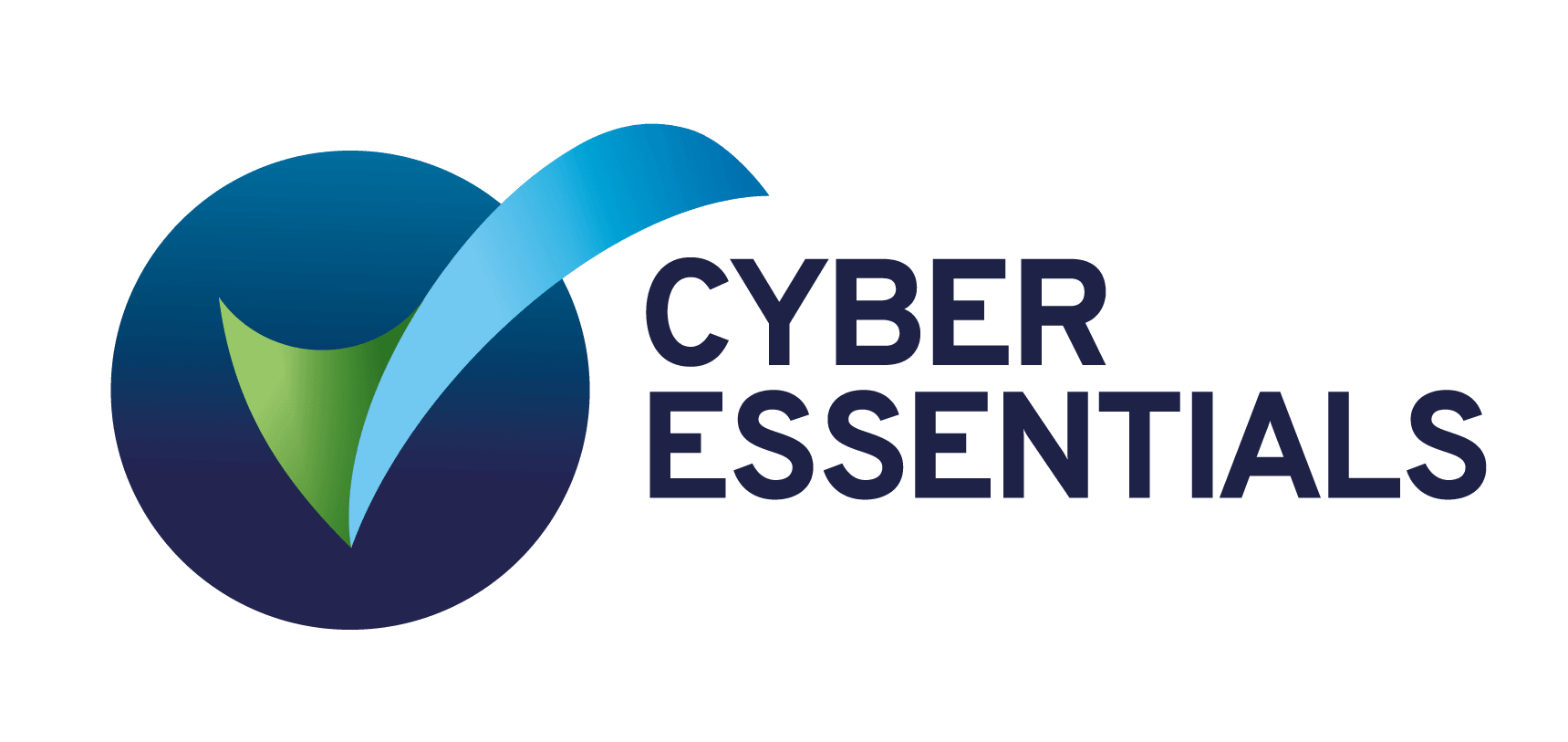The Indispensable Role of Digital PR in AI Search
Why a Robust PR Strategy is Now the Cornerstone of SEO
Remember the days of old-school SEO? The relentless focus on keyword stuffing, the battle for the top spot on a ten-blue-links page, and the never-ending quest for a higher Domain Authority score. It was a simpler, more mechanical world. But AI has changed everything. The search landscape is no longer a static list of websites; it's a dynamic, conversational engine that seeks to understand and answer our queries directly.
The arrival of AI-powered features, such as Google’s Search Generative Experience (SGE), marks a seismic shift. This isn't just an update; it's a new paradigm. In this new era, SEO success isn't just about technical finesse; it's about being a trusted, authoritative brand. This is where digital PR steps out of the shadows and becomes the single most effective tool in your marketing arsenal.
This article will explore why a robust digital PR strategy is no longer a 'nice-to-have' but the fundamental pillar of modern SEO. We'll delve into the new rules of AI search, demonstrate how digital PR builds the trust signals that AI craves, and provide a clear, actionable roadmap for your brand.
The E-E-A-T Framework in an AI World
To understand why digital PR is so vital, you first need to grasp the importance of E-E-A-T—Experience, Expertise, Authoritativeness, and Trustworthiness. While Google introduced this concept years ago, AI has supercharged its significance. AI models, including the Large Language Models (LLMs) that power generative search, are trained on vast datasets of human-written information. Their primary directive is to provide helpful, reliable, and factually accurate answers.
To achieve this, they need a way to distinguish credible content from the overwhelming flood of low-quality, AI-generated spam. E-E-A-T is their guiding light.
- Experience: This is about first-hand, real-world knowledge. Can the content creator demonstrate they've personally used the product or lived the experience they're describing?
- Expertise: Does the author have the demonstrable knowledge and skill to write on this topic?
- Authoritativeness: Is the website or its author a recognised, go-to source in their industry? Are they cited and referenced by others?
- Trustworthiness: This is the cornerstone. Is the site honest, safe, and reliable? Can the user trust the information provided?
Think of an AI model as a fastidious researcher. It won't cite a random forum post as a source for a medical query. Instead, it will look for a peer-reviewed journal, a respected news outlet like the BBC, or a recognised expert with a long history of credibility. Digital PR is the process of getting your brand to become that "respected source."
A recent study by SEO agency Motive PR found that branded web mentions have a stronger correlation with visibility in AI Overviews than traditional backlinks. This shows the value is in the signal of brand recognition and trust, not just the link itself.
Digital PR as an Engine for E-E-A-T
Digital PR works by directly influencing these crucial E-E-A-T signals. It's an engine that builds trust and authority at scale, which in turn boosts your organic visibility and search rankings.
Building Expertise & Authoritativeness with High-Quality Backlinks
Backlinks have always been important, but AI has made the distinction between good and bad links crystal clear. Gone are the days when you could buy a list of low-quality links and see a ranking boost. AI is highly effective at identifying and devaluing manipulative link schemes, so it's a zero-sum game.
Digital PR focuses on earning editorially-placed, high-quality links from relevant, authoritative websites. For example, an article about your new product in The Guardian or a feature on your company in a respected industry publication like Marketing Week is a powerful vote of confidence. This isn't just a simple link; it's a third-party endorsement that signals to search engines that your brand is an authority in its field.
A 2024 study by SEO software provider Ahrefs found that the number of referring domains is a key ranking factor, with the highest-ranking pages on Google having an average of 3.8 times more backlinks than pages that rank lower. This proves the direct correlation between high-quality link acquisition and improved search performance.
Cultivating Trustworthiness through Brand Mentions
Beyond the backlink, a major benefit of digital PR is its ability to generate unlinked brand mentions. These are instances where your brand name is mentioned in an article or on a website without a hyperlink back to your site. You might wonder, how does Google know this is valuable?
Thanks to advanced Natural Language Processing (NLP), AI can read and understand the context of these mentions. It can determine that when your brand is mentioned positively in dozens of articles, it's a powerful signal of your reputation and trustworthiness. A brand that is a natural part of the conversation is seen as more reliable and respected. As former Googler Matt Cutts once said, in an ideal world, backlinks would be based on "unlinked brand mentions." Today, with the power of AI, that ideal is becoming a reality.
Digital PR works to build a positive brand narrative across the web. Through strategic outreach, you can ensure journalists, bloggers, and industry experts are talking about your brand, positioning it as a credible, trustworthy voice in its sector.
Beyond the Backlink: Generative Engine Optimisation (GEO)
As we move further into the AI search era, our focus can't just be on traditional search rankings. We must also optimise for Generative Engine Optimisation (GEO)—the practice of being featured and cited within AI-generated summaries.
In an SGE result, a user might never click on a link. The AI may provide a complete answer on the search results page. In this scenario, being cited as a source of truth is the ultimate win. It builds brand recognition and authority without relying on the click-through. This is where your brand is "top of mind" for both the user and the AI.
Digital PR is the most effective way to achieve GEO. By consistently earning media coverage on trusted, high-authority websites, your brand's content becomes part of the "knowledge graph" that AI models are trained on. This means your brand is more likely to be cited in an AI-generated answer.
For instance, imagine your team publishes original research on consumer spending habits. A journalist from the BBC picks up the data and cites it in an article. Later, a user asks Google, "What are the latest consumer spending trends?" The SGE response might include your brand's data and credit you as the source, reinforcing your authority to millions of users.
The Tactical Toolkit: A Modern Digital PR Strategy
So, what does this look like in practice? A modern digital PR strategy is a mix of creative campaigns and consistent, proactive outreach. Here are some of the key tactics that will build your E-E-A-T and secure your place in AI search results:
| Tactic | Description | AI Search Benefit |
|---|---|---|
| Hero Campaigns | Large-scale, data-led campaigns. | High-quality, high-volume link acquisition. Strong brand authority signal. |
| Thought Leadership | Placing articles and expert commentary. | Positions brand as an expert, builds trust. |
| Reactive PR | Responding to news with expert insight. | Timely, relevant brand mentions and links. |
| Link Insertion | Pitching existing content for link opportunities. | Efficiently builds authority to existing pages. |
Let's take a closer look at a data-led campaign. Imagine your brand, H10 Marketing, conducts a study on "The State of AI in British Marketing." You survey hundreds of professionals and publish a comprehensive report with unique data points. You then use digital PR to pitch this data to key industry publications. The result is not only a wave of high-quality backlinks, but your brand is now the go-to source for that data. Every time a journalist or content creator references your report, they are building your authority and trustworthiness, not just with human readers, but with AI models, too.
Measuring Success: Beyond Vanity Metrics
With the shift in SEO, we must also change how we measure the ROI of our digital PR efforts. Traditional metrics like Advertising Value Equivalency (AVE) are outdated and irrelevant. The true value lies in the impact on your organic performance and brand authority.
Here are the key performance indicators that matter today:
- Organic Traffic & Keyword Rankings: Track how a digital PR campaign drives improvements in your target keyword rankings and, more importantly, the resulting organic traffic to your site. Look for improvements on the pages that were the focus of your campaigns.
- Branded Search Volume: Use tools like Google Trends and Google Search Console to monitor for an increase in users searching directly for your brand name or products. A spike in branded searches after a major campaign is a clear indicator that your brand's visibility and reputation are growing.
- Brand Sentiment & Share of Voice: Use social listening tools to track the volume and tone of conversations about your brand. Are you being talked about more than your competitors? Is the conversation positive? These are direct signals of the trust and authority you are building.
The true ROI of digital PR is not just in the short-term traffic boost, but in building a long-term, authoritative, and trustworthy brand that is favoured by both humans and AI. It's an investment in the future of your online presence.
Future-Proof Your SEO with Digital PR
The world of AI search is here, and it’s evolving at an unprecedented pace. The old rules of SEO are being rewritten, and the one constant is the fundamental human need for credible, reliable information.
AI understands this. Its algorithms are designed to reward brands that demonstrate genuine E-E-A-T. Digital PR is the most powerful tool you have to build those signals. By consistently earning high-quality, editorially-placed media mentions, you are not only securing valuable backlinks but also building a positive brand narrative that tells both humans and AI that you are a trusted source.
The question is no longer "should we invest in digital PR?" but "how can we integrate it at the heart of our SEO strategy?" For any brand looking to survive and thrive in this new landscape, the answer is clear: make digital PR your number one priority.














